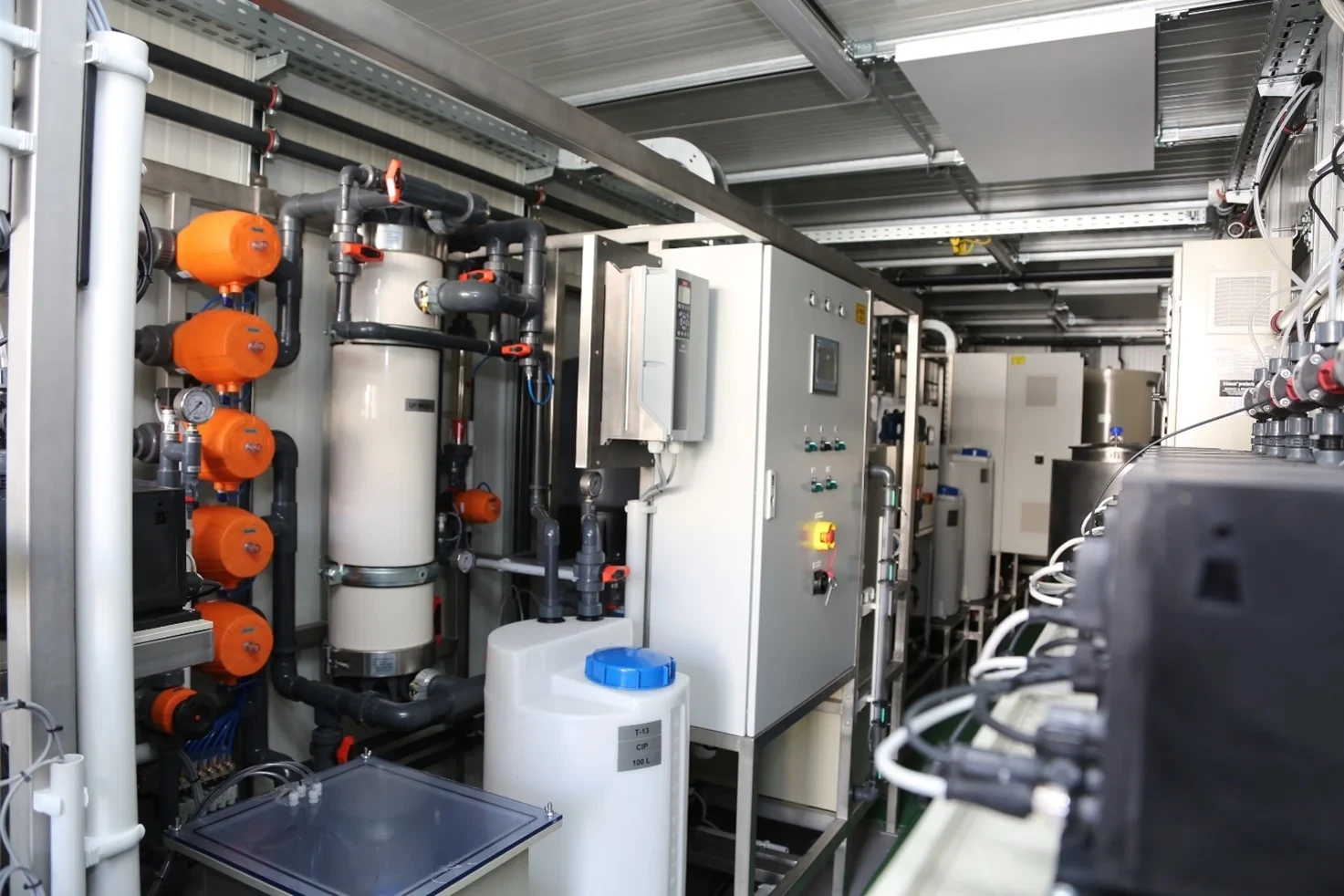Global climate change is one of the biggest challenges facing humanity. Plans are being made at the intergovernmental level and international forums to reduce its harmful effects, but we will have to live with climate change for a long time to come. Negative impacts vary from region to region, so local climate adaptation measures are essential to manage them effectively. BorsodChem Zrt. The University of Miskolc and the city of Kazincbarcika jointly participated in the EU climate adaptation tender, LIFE-CLIMCOOP, in which the HungaroMet Nonprofit Zrt also participated. The Geogold Kárpátia Kft and the KÖVET Association.
The aim of the project is to reduce the amount of water taken from Sago. A prototype water purification container with a capacity of 1 cubic meter per hour has been commissioned at the BorsodChem site in Kazincbarcika. The equipment, individually manufactured by Hidrofilt Kft, was delivered on January 25, 2023. With this equipment, water containing pollutants can be purified for reuse, which would not be suitable for industrial use. The challenge is the high concentration of inorganic salts, as this water is already devoid of organic matter.
After multimedia filtration, the conductivity of the treated water streams arriving at the prototype in microdesalination processes is reduced. This can be achieved through the so-called technological steps of reverse osmosis and ion exchange. Instead of previous ion exchange solutions, where chemical regeneration of resins during saturation produced a large amount of wastewater, the current prototype's chemical-free, continuous self-renewal solution enables economical recycling of process water. For BorsodChem, this type of water recycling could be the solution to reduce water withdrawal from the Sago River. The product is pure, deionized water, and after treatment, it can start a new cycle within BorsodChem's water system, or alternatively, it can increase the water supply of the city of Kazincbarcika, for example in the form of water for irrigation. .
The company's engineers plan to test the prototype in several locations ideal for water supply, such as the water circuit for cooling towers, the various treated water branches in the wastewater treatment plant, and the concentrated treatment of water treatment plants.
If the prototype tests are successful, BorsodChem Zrt could implement water purification equipment on an industrial scale, enabling the recycling of a large amount of treated water, reducing raw water use and wastewater discharge. The program is closely linked to the company's sustainability goals, under which the company has pledged to reduce the amount of water extracted from Sago by 10 percent by 2030. These investments reduce the likelihood of climate risks associated with periods of drought, helping settlements and businesses in the Sago watershed. The results and reproducibility of the project can serve as an example of good practices for other collaborations on climate adaptation between cities and businesses.












































